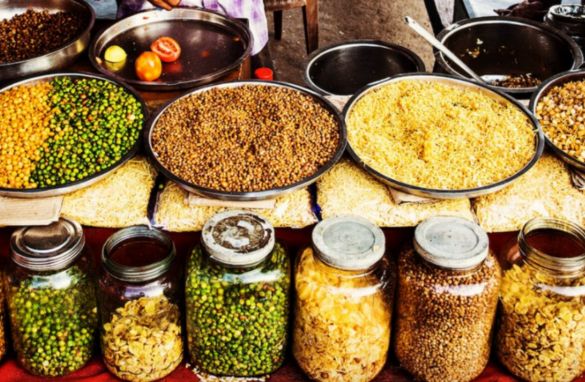
Pulse Powerhouse: Join the Celebration on World Pulses Day
While you’ll celebrate the World Pulses Day , read about Oko eco-friendly food packaging for curry meals, especially those with pulses. Oko boxes demand thoughtful customization, including a leak-proof design.
Every year in Feb, people worldwide come together to observe World Pulses Day, an event designated by the United Nations in 2018. This day serves as a meaningful reminder of pulses’ importance and nutritional advantages. In the Indian context, where agriculture is deeply ingrained in the nation’s identity, the role of pulses goes beyond basic sustenance.
Pulses are essential due to their nutritional strength and capacity to play a role in the nation’s path towards sustainable food systems, eliminating hunger, and promoting economic resilience.
Nutritional significance
In the diverse tapestry of Indian cuisine, pulses play a central role, providing a rich source of protein, fibre, and essential nutrients. From the comforting dal dishes to the robust flavours of chana masala, pulses have been a culinary cornerstone for centuries. Recognizing their nutritional density, the United Nations emphasizes the role of pulses in addressing malnutrition, a persistent challenge in India.
Protein deficiency is a prevalent concern in our country, especially among vulnerable populations. With their protein-rich composition, pulses emerge as a cost-effective and accessible solution to bridge this nutritional gap. As India grapples with the dual burden of malnutrition and the increasing occurrence of lifestyle-related health issues, incorporating pulses into daily diet becomes imperative for promoting overall health and well-being.
Sustainable agriculture for Indian farms
In the heartland of India’s agricultural legacy, World Pulses Day resonates with a unique significance. As the nation strives to strengthen its global position, pulses are a silent force driving sustainable development.
In the vast agricultural landscape of India, pulses offer a sustainable pathway for farmers towards resilient and eco-friendly practices. The ability of pulses to fix nitrogen in the soil enhances fertility, reducing the dependency on synthetic fertilizers. This is particularly significant in a country where smallholder farmers form the backbone of agriculture. By promoting crop rotation that includes pulses, Indian farmers can improve soil health, increase yields, and contribute to the nation’s food security.
Furthermore, pulses are well-suited to diverse climatic conditions prevalent in different regions of India. Their adaptability makes them a valuable asset in mitigating the impacts of climate change on agriculture. Sustainable farming practices align with global environmental goals and resonate with India’s commitment to responsible agricultural stewardship.
As pulses are integrated into local diets, they become a crucial element in ensuring food security at the grassroots level. The versatile nature of pulses allows for creating nutritious and affordable meals, catering to diverse tastes and preferences across India’s vast cultural landscape. In India’s mid-day meal schemes, pulses stand as nutritional pillars, providing essential protein for children’s growth. Integrating pulses into these programs enhances the nutritional value and supports cost-effective and sustainable approaches to address malnutrition among students.
Evirocor – rising to the challenge
Evirocor’s Oko food packaging stands as a viable alternative to various single-use materials that harm the environment. Leveraging Evirocor’s patented manufacturing technology, this innovative packaging offers a water-tight, food-friendly solution that surpasses plastics, aluminium foil, and paper in durability, strength, insulation, and visual appeal.
Oko products stand as a crucial component, aiding India in acknowledging the inherent value of pulses. Crafting eco-friendly food packaging for curry meals, especially those with pulses, demands thoughtful customization, including a leak-proof design. Oko’s offerings play a pivotal role in fostering sustainability and acknowledging the significance of these nutritious legumes.
